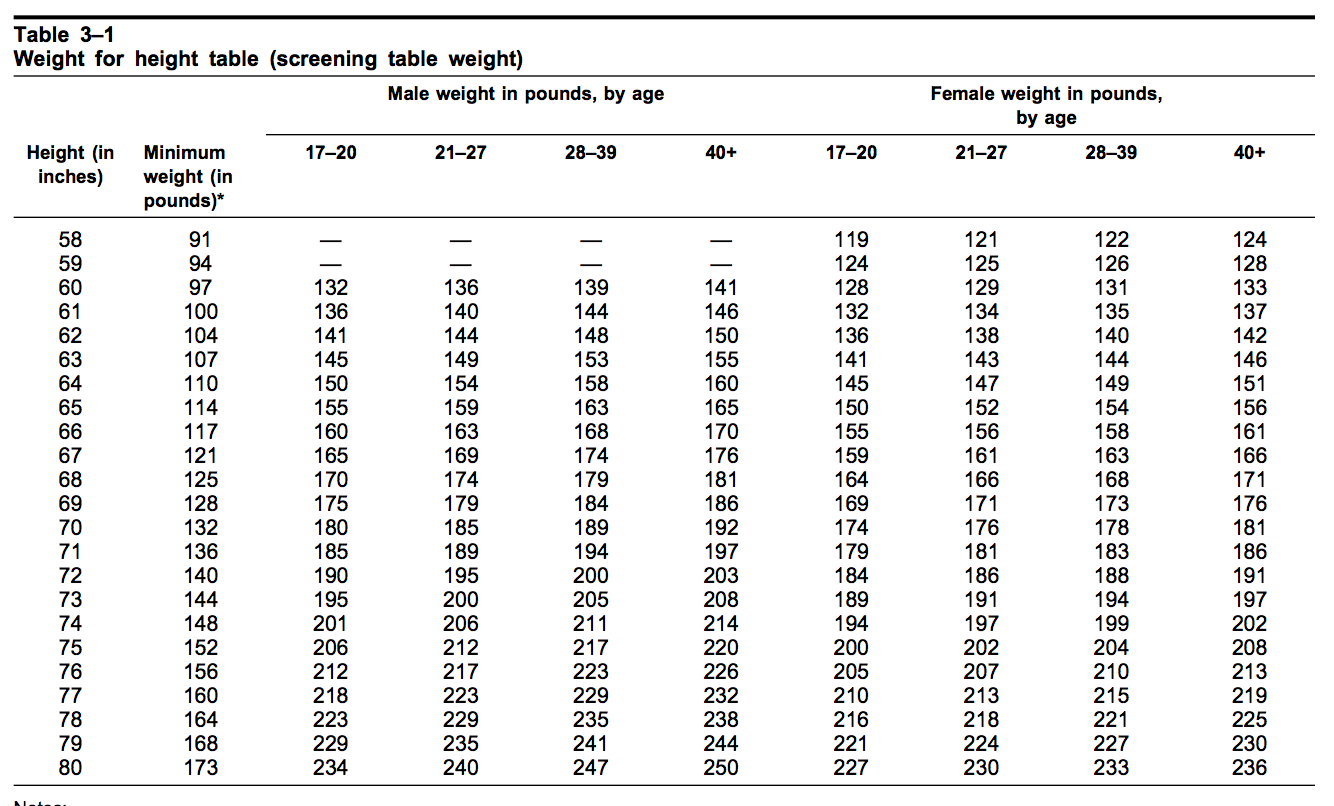The army weight scale is an essential tool used by military personnel to ensure that they meet the required weight standards for service. This scale plays a critical role not only in maintaining the physical fitness of soldiers but also in ensuring operational readiness. Weight management is crucial in the army, as it directly impacts a soldier's performance, health, and safety. In addition to physical fitness, the army weight scale helps foster discipline and accountability among troops.
In a world where the demands of military life are ever-increasing, the army weight scale serves as a benchmark for health assessments. Soldiers are required to regularly monitor their weight to ensure they remain within the prescribed limits. This adherence to weight standards is not only for personal health but also reflects the standards and values of the military as a whole. By utilizing the army weight scale, soldiers can track their progress and make necessary adjustments to their fitness routines.
Moreover, the importance of the army weight scale extends beyond just individual soldiers. It is a crucial element in the management of military units, as it helps commanders make informed decisions about personnel deployment, fitness training, and readiness for combat. In this article, we will delve deeper into the various aspects of the army weight scale, including its significance, how it is utilized, and the implications of weight standards in the military.
What is the Army Weight Scale?
The army weight scale is a specialized weighing device designed to assess the weight of military personnel accurately. Unlike standard household scales, army weight scales often come equipped with features that cater specifically to the military's needs. These scales are built to withstand rigorous use and provide precise measurements, ensuring that soldiers’ weights are recorded accurately during evaluations.
How Does the Army Weight Scale Work?
The army weight scale functions similarly to regular scales, but with enhanced durability and precision. It typically consists of a flat platform on which the soldier stands, with a digital or analog display that shows the weight. To ensure accuracy, soldiers are instructed to remove heavy clothing and gear before stepping onto the scale. Regular calibration of the scales is also necessary to maintain their accuracy over time.
Why is Weight Management Important in the Army?
Weight management is vital for several reasons in the army:
- Physical Performance: Excess weight can hinder a soldier's agility and endurance.
- Health Risks: Maintaining a healthy weight reduces the risk of chronic diseases.
- Operational Readiness: Soldiers need to be fit to respond to various situations effectively.
- Discipline: Adhering to weight standards instills a sense of responsibility and discipline.
What are the Standards for Army Weight Measurement?
The army has specific weight standards that vary based on factors such as age, gender, and height. These standards are crucial for evaluating a soldier’s fitness level. Soldiers are typically required to meet a maximum weight limit based on their height, and there are also body fat percentage standards that must be adhered to. Regular assessments are conducted to ensure compliance with these standards.
How Often Are Soldiers Weighed?
The frequency of weigh-ins can vary depending on the military branch and unit policies. However, soldiers are generally weighed at least twice a year. Additional weigh-ins may occur if a soldier is suspected of being over the weight limit or if they are entering into a program that requires more frequent monitoring of their physical fitness.
What Happens if a Soldier Fails to Meet Weight Standards?
Failing to meet the army weight scale standards can have serious consequences for soldiers. The potential repercussions include:
- Mandatory Weight Loss Programs: Soldiers may be required to participate in programs aimed at helping them lose weight.
- Administrative Actions: Repeated failures to meet standards can lead to administrative actions, which may affect career progression.
- Separation from Service: In extreme cases, soldiers may be separated from service for failing to meet weight and fitness standards consistently.
How Can Soldiers Improve Their Weight Management?
Effective weight management is achievable through a combination of strategies:
- Nutrition: Consuming a balanced diet rich in nutrients while being mindful of portion sizes.
- Exercise: Regular physical activity tailored to individual fitness levels.
- Goal Setting: Establishing realistic and achievable weight goals for sustained progress.
- Support: Engaging with fellow soldiers, trainers, or nutritionists for guidance and encouragement.
What Role Does Leadership Play in Weight Management?
Leadership plays a significant role in promoting weight management within the army. Commanders and leaders are responsible for setting the tone and expectations regarding fitness and weight standards. They can foster a culture of health and fitness by:
- Encouraging participation in fitness programs.
- Recognizing and rewarding soldiers who meet and exceed weight standards.
- Providing resources for healthy eating and exercise.
Conclusion: The Future of the Army Weight Scale
As the military continues to evolve, so too will the technologies and methodologies surrounding the army weight scale. Advancements in fitness tracking, nutrition, and overall health awareness will likely change how weight standards are assessed and managed. The importance of the army weight scale will remain paramount in ensuring soldiers are healthy, fit, and ready for the challenges of military service.
Discovering The Wonders Of Movie4u.in VIP
Discovering The Wonders Of OSRS Shooting Stars
The Enigmatic Journey Of Hyapatia Lee: From Stardom To Legacy


